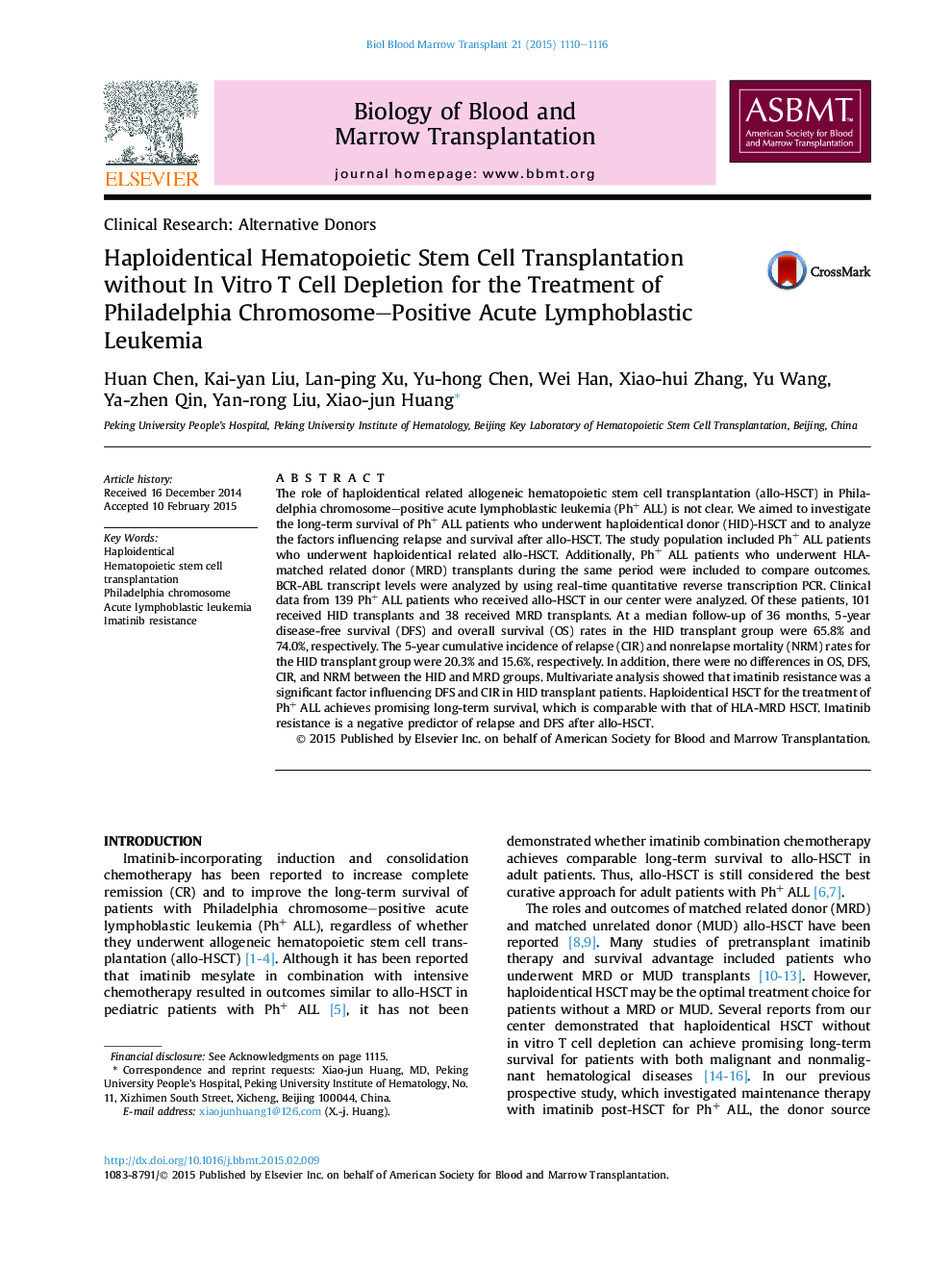| Article ID | Journal | Published Year | Pages | File Type |
|---|---|---|---|---|
| 2101560 | Biology of Blood and Marrow Transplantation | 2015 | 7 Pages |
•The role of haploidentical related hematopoietic stem cell transplantation in Ph + ALL is not clear.•We first reported that haploidentical HSCT for the treatment of Ph + ALL achieves promising long-term survival, which is comparable to that of HLA-matched related HSCT.•Imatinib resistance is a negative predictor of relapse and DFS after allo-HSCT.
The role of haploidentical related allogeneic hematopoietic stem cell transplantation (allo-HSCT) in Philadelphia chromosome–positive acute lymphoblastic leukemia (Ph+ ALL) is not clear. We aimed to investigate the long-term survival of Ph+ ALL patients who underwent haploidentical donor (HID)-HSCT and to analyze the factors influencing relapse and survival after allo-HSCT. The study population included Ph+ ALL patients who underwent haploidentical related allo-HSCT. Additionally, Ph+ ALL patients who underwent HLA-matched related donor (MRD) transplants during the same period were included to compare outcomes. BCR-ABL transcript levels were analyzed by using real-time quantitative reverse transcription PCR. Clinical data from 139 Ph+ ALL patients who received allo-HSCT in our center were analyzed. Of these patients, 101 received HID transplants and 38 received MRD transplants. At a median follow-up of 36 months, 5-year disease-free survival (DFS) and overall survival (OS) rates in the HID transplant group were 65.8% and 74.0%, respectively. The 5-year cumulative incidence of relapse (CIR) and nonrelapse mortality (NRM) rates for the HID transplant group were 20.3% and 15.6%, respectively. In addition, there were no differences in OS, DFS, CIR, and NRM between the HID and MRD groups. Multivariate analysis showed that imatinib resistance was a significant factor influencing DFS and CIR in HID transplant patients. Haploidentical HSCT for the treatment of Ph+ ALL achieves promising long-term survival, which is comparable with that of HLA-MRD HSCT. Imatinib resistance is a negative predictor of relapse and DFS after allo-HSCT.
Graphical abstractFigure optionsDownload full-size imageDownload high-quality image (108 K)Download as PowerPoint slide
